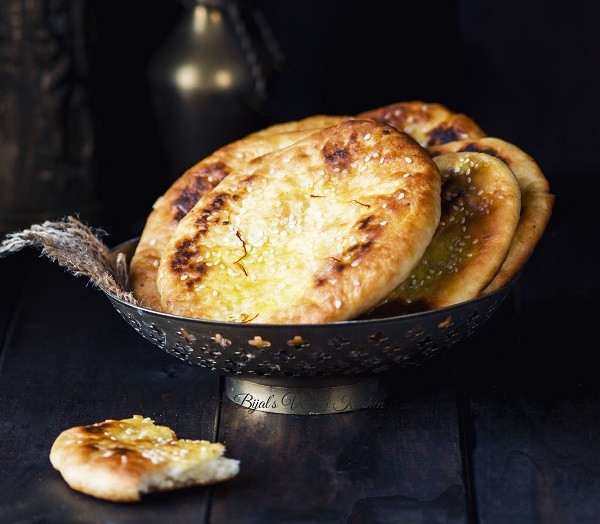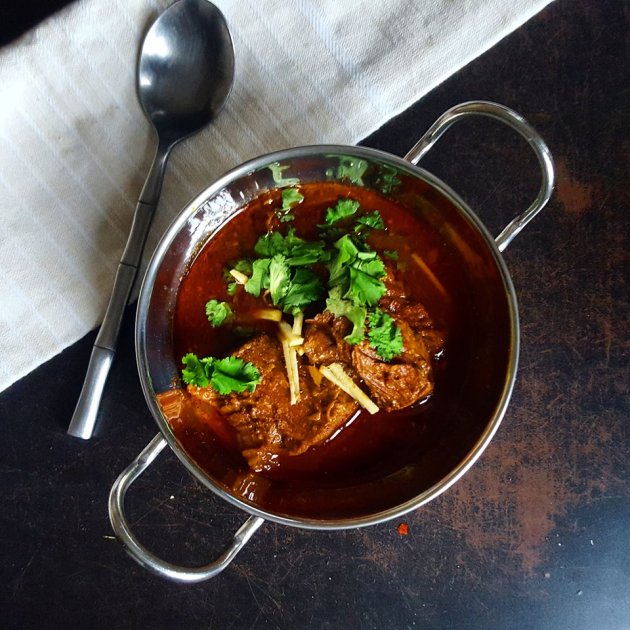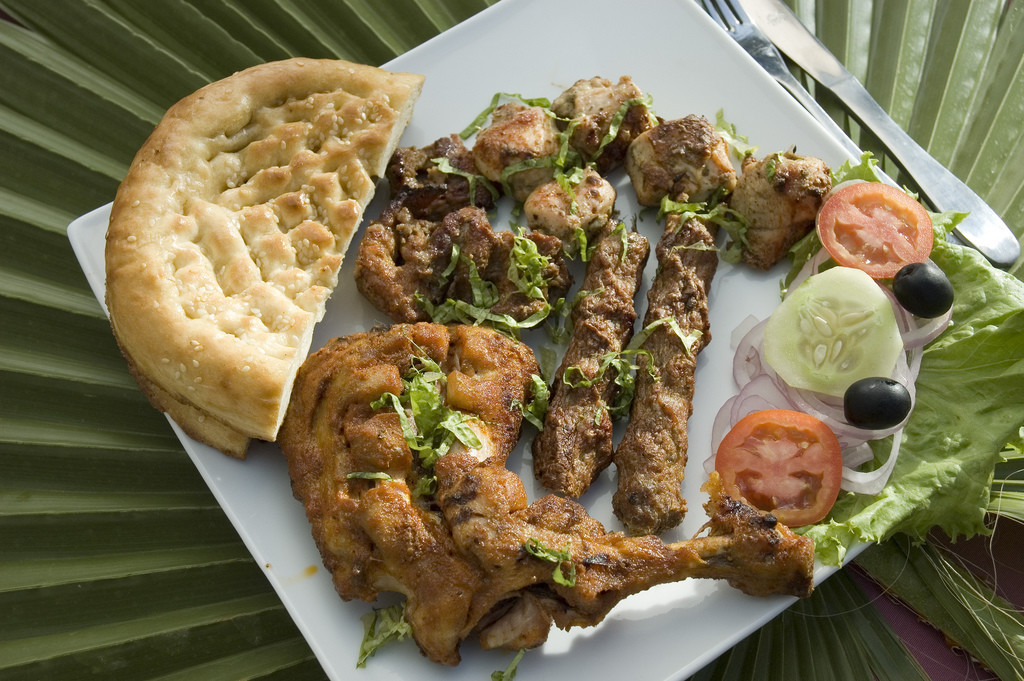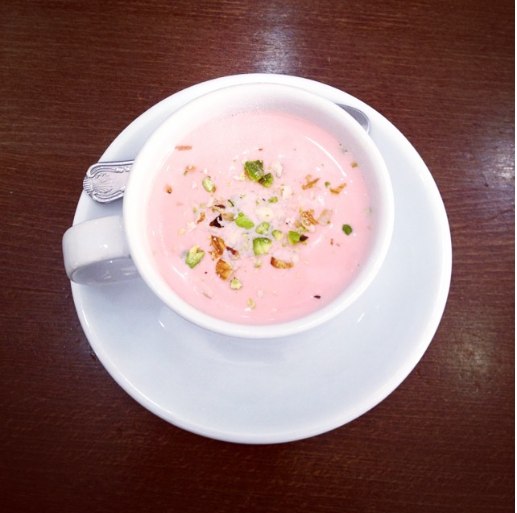Frequently overshadowed by Indian food, Pakistan’s food goes forgotten, but honestly, why? With Indian, Central Asian, and Persian influences, Pakistani meals are spectacular. How could you overlook the flavorful complexity in the dishes, the attention to balance, and the love and care that goes into the prep?
Pakistanis love their meats, but their vegetarian dishes are equally essential to a wholesome Pakistani meal. Here are some of the best Pakistani dishes you need to try.
1. Gol gappa is the Holy Grail of street food

Photo courtesy of plattershare.com
Honestly, even if you buy gol gappa from the sketchiest street vendor, you will always (without fail) enjoy the flavor and textural complexity. In a single bite, you get the crunch of the shell, the spicy chickpea-potato salad concealed within, the cooling yoghurt sauce, and the sweet and sour tamarind chutney spooned on top. There is a reason why you have to add it to your foodie bucket list. I promise you will want a rickshaw-load and then some.
2. Naan’s okay, but sheermal is better

Photo courtesy of binjalsvegkitchen.com
Imagine the pillowy-ness of naan but richer, sweeter, and slightly caramelized. That’s sheermal. With a touch of ghee or butter, sheermal can be eaten alone or along with chai or contrasted against the spiciest of dishes.
3. Nihari is like beef bourguignon, but with a lot more sass

Photo courtesy of sophiasglobalfoodchallenge.wordpress.com
This is Pakistani comfort food at its finest. Spiced beef is braised for hours (literally, hours) until the meat, in all its tender glory, falls apart into the unctuous stew. Lemon juice and cilantro can be added to cut through the stew’s richness. The Netflix series Cooked shows just how much happiness nihari brings. I promise, you have to try it.
4. Pakistani BBQ — enough said

Photo courtesy of Umair Mohsin
Pakistanis will generally admit that Indians know their daals, but hot damn, do Pakistanis know their barbeque. Meats are prepared with variety: chicken tikka, skewered shikh kabobs, bahari kabobs, the list goes on. Roasting the meats over a fire brings out a different layer of flavor from the spices, imparting a touch of smoke.
A lot of Pakistani restaurants will name themselves after barbeque dishes, such as Lahori Kabab in New York, as if to tell the general public, “we can hook you up with the real deal, homie.”
5. Seafood is considered food for royalty and is treated as such

Photo courtesy of consumptioncompulsion.com
The sea-bordering city of Karachi is considered a seafood hub, distributing fresh, locally-caught seafood internationally. Locally, the seafood goes to the likes of five-star restaurants.
Pakistanis consider seafood a unique delicacy. Therefore, they allow only highly trained chefs to prepare this relatively temperamental food. The dishes, such as this seafood handi, reflect this care.
6. The tea is pink (naturally)

Photo courtesy of @marinaumm on Instagram
This isn’t raspberry Starbucks fru-fru nonsense. No, this is magic. This tea is derived from a green tea, but the cooking process turns the brew pink. Kashmiri chai is as soothing as your bedtime warm milk. Actually, no, this is better. The sweet, subtle notes of cardamom and almond remind you why people call this Pakistan’s best kept secret.
7. Mangos are fresh from the bazaar

Photo courtesy of deliciouschip.com
Pakistanis go ham for their mangos. As yum as mangos are fresh, when chucked into a blender with milk (plus some other ingredients), you have the ever-so-refreshing mango lassi. I’m pretty sure Pakistanis don’t drink, because they are drunk in love with their lassi, ayyy.
8. Falooda is the ultimate treat

Photo courtesy of myninjajaan.wordpress.com
Falooda is a reward for the truly adventurous eater. Layers of vermicelli noodles, rose syrup, milk, tiny chia-like seeds, and tons of ice cream come together for a refreshing summer dessert drink. Half the fun of making this drink is eating it at the end.
Cook a Pakistani recipe, find a good Pakistani restaurant near you, or simply find a Pakistani to actually taste what this culture has to offer.


